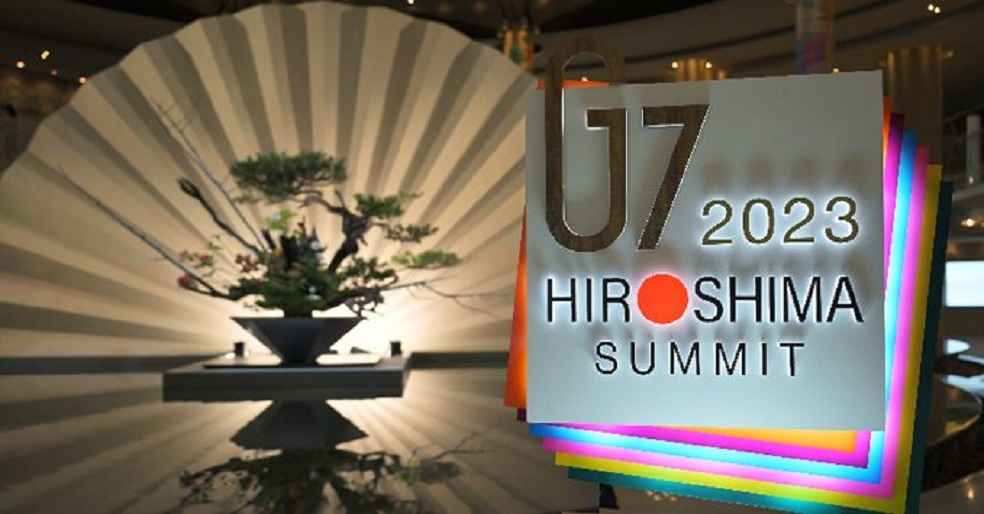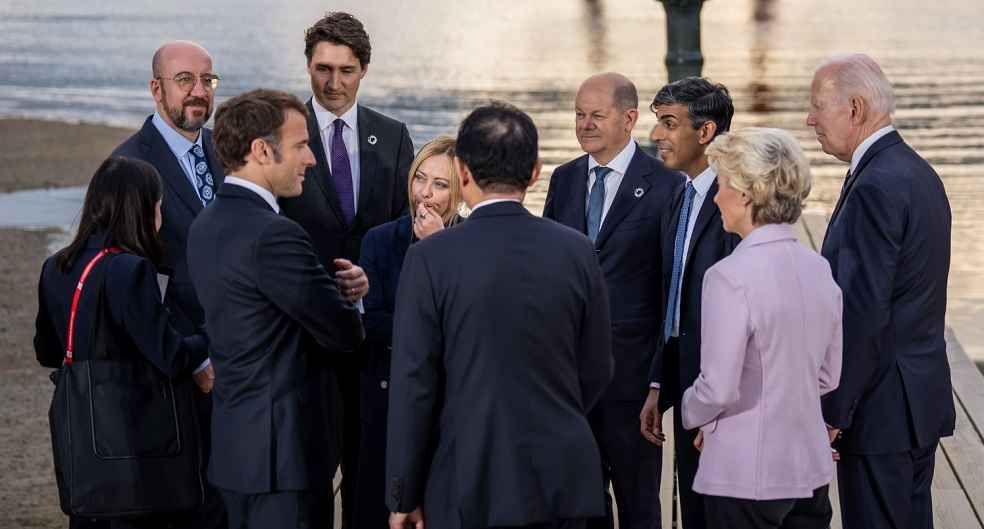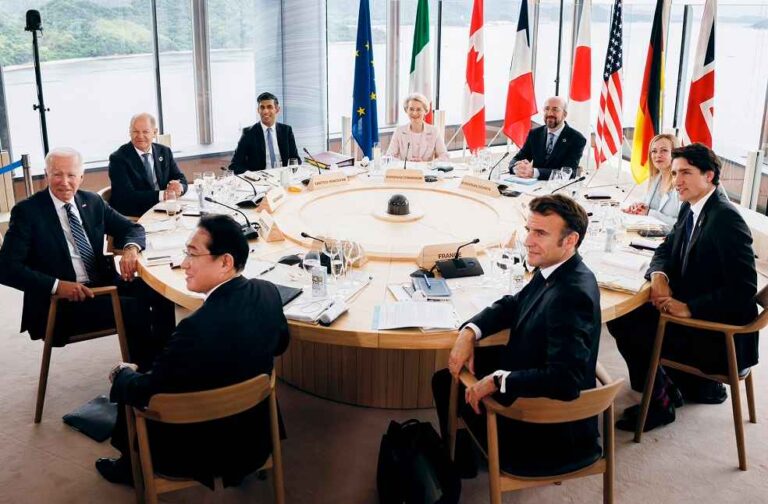Hiroshima, a city once decimated by nuclear devastation, became the ground zero for a significant global policy shift as leaders of the G7 nations resolved to intensify sanctions on Russia and curb trade dependencies on China.
Following extensive discussions in Hiroshima, the G7 – comprising the United States, Japan, Germany, Britain, France, Italy, and Canada – pledged to curb any exports to Russia that may fuel its ongoing conflict with Ukraine. This includes not only industrial machinery, tools, and related technologies, but also efforts to limit Russia’s trade revenues from metals and diamonds.
The bold decision, outlined in a joint statement on Friday, came in response to Russia’s 15-month invasion of Ukraine, which has strained international relations and led to a heightened call for economic countermeasures. The Ukrainian President, Volodymyr Zelenskiy, is expected to join the discussions over the weekend, signifying Ukraine’s central role in these global deliberations.

In the shadow of China’s economic power, the G7 nations emphasized the need for cooperation, acknowledging China’s status as the world’s second-largest economy. The drafted communique cited a focus on fostering “stable and constructive” ties with Beijing, without impeding China’s economic progression.
Yet, the G7 nations also expressed concerns over potential economic security threats. They called for measures to reduce “excessive dependencies” in critical supply chains and counter perceived malign practices, including technology transfers and data disclosures. The leaders reiterated the necessity for peace and stability in the Taiwan Strait, underlining the geopolitical sensitivities surrounding China.
The G7 meeting also featured a vital conversation around nuclear disarmament. Amid Russia’s apparent threats of nuclear recourse and growing nuclear programs in North Korea and Iran, the G7 nations, including nuclear-armed members France, Britain, and the United States, expressed commitment to a world without nuclear weapons, echoing the historical significance of their meeting place – Hiroshima.

The global landscape is changing as the world’s wealthiest nations grapple with the challenges posed by a rising China and an unpredictable Russia. The G7 summit showcased strategies to ensure sanctions against Russia are effective, addressing concerns over circumvention through third-party countries.
In parallel, discussions on sector-specific sanctions led to notable decisions. The U.S. administration has expanded its trade blacklist, while Britain unveiled plans to ban imports of Russian diamonds, copper, aluminum, and nickel. Although these commodities represent a small fraction of Russia’s exports, the move underlines the international effort to further isolate Russia economically.
As the world watches these developments, the G7 nations remain resolute in their condemnation of Russian aggression, promising continued support for Ukraine in both military and financial aspects.
This crucial G7 summit represents a pivotal point in global economic and political relationships. As the leaders conclude their deliberations, the world anticipates the next steps in this evolving geopolitical narrative, which could reshape the global trade dynamics and power structures in the years to come.
GLOBAL ROUNDUP: Net-Zero Breakthrough: Oil & Gas Industry’s Remarkable Green Shift



